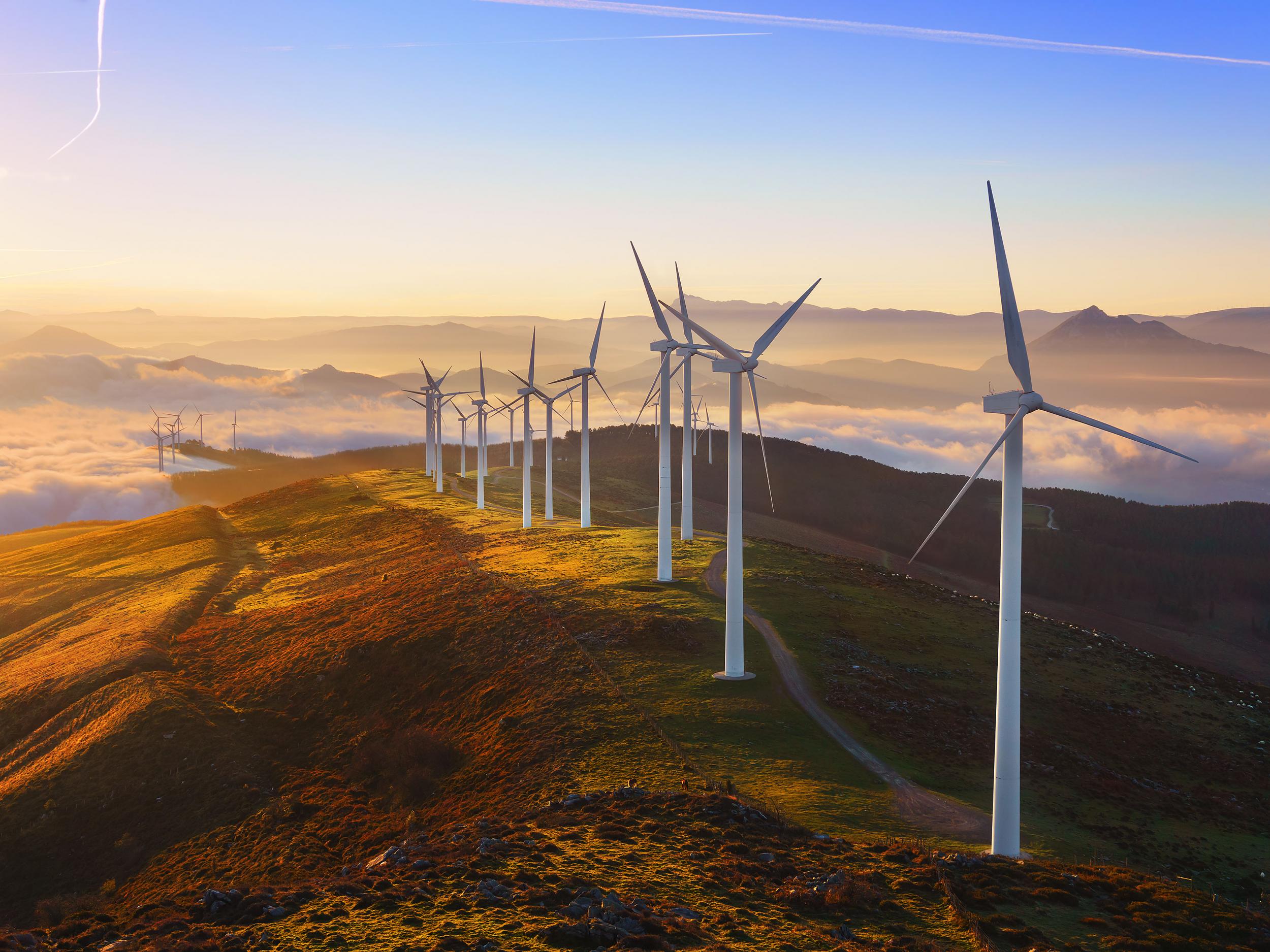Want to reduce your carbon footprint? Invest in a windfarm
Ripple Energy is putting wind in the sails of onshore turbine farms with their ‘unique’ approach to green energy. CEO and founder Sarah Merrick tells Andy Martin why now is the best time to act on climate change


Stuck for something to put on your wedding list? Need a novel idea for a Christmas present? Why not buy someone – or yourself – a wind turbine? Now you can, thanks to Sarah Merrick, founder and CEO of Ripple Energy, which has won the prize for Startup of the Year 2019, awarded by equity crowdfunding platform Seedrs.
Merrick, 41, has always worked in energy. She studied economics at UEA and got a job on graduating with the trade association for electricity producers. “I had no idea my job even existed,” she says. The electricity producers included nuclear and gas, but a feeling for the way the wind was blowing led her to put the emphasis on renewables.
In November 2000 she organised an official visit to the first offshore windfarm in Britain, off Blyth in Northumberland. The turbine was a mere 2 megawatts but this was a watershed moment. It was love at first sight. “I’d only been in the job a month. People were amazed that it had actually happened.”
Now 19 per cent of our energy comes from wind. Costs have come down from £150 to £58 per megawatt-hour of electricity. Turbines – now more like 10 megawatts – are taller, their blades are longer and they capture higher wind speeds. Merrick naturally ended up working first for Renewable Energy Systems and then Vestas, the biggest manufacturer of wind turbines in the UK, where she was head of public affairs.
“We’ve got this fantastic resource,” says Merrick. “The question is how to make it available to consumers.” The answer in the past was corporate. The big energy companies bought up the wind turbines and integrated them into their system. Now Merrick has come up with a different approach. “We want to revolutionise home energy,” she says.
We’ve got this fantastic resource, the question is how to make it available to consumers
Her brilliant idea is to sell the turbine direct to consumers, so you can own your very own windfarm (life expectancy: around 25 years). Or at least a small part of one. One wind turbine will set you back approximately £3m. But you can buy a share (1/2,500th) of one for around £1,200, or less than that for a fraction of a share. Or give as a present, for no more than £12. “People love wind. It seemed unfair that big corporates and pension funds could access this resource and I, as a consumer, couldn’t.” And, as she points out, wind is free and it doesn’t increase global warming either. It’s the energy equivalent of going vegan or giving up your gas-guzzling car.
Your investment buys you access to cheap, green energy. Beyond that you pay only for the operating costs, which are low and stable, unlike the rest of the energy market. In effect, you become part of a co-operative that owns the whole wind turbine. “What we want to do,” says Merrick, “is change the customer position in the value chain – to put them on top.” At the moment, consumers are at the bottom of the chain – you just pay the bill when it comes through your door. Now you can own the energy, or at least the infrastructure for capturing it.

Merrick argues that owning your own wind turbine is not just cheaper than sticking solar panels on your roof, but more practical because you can take it with you if you move home. It’s portable. In fact, you don’t even need a house at all. And you can watch your turbine going around, somewhere in Scotland (or wherever) in the comfort of your living room, via a webcam live feed.
Now you can own the energy, or at least the infrastructure for capturing it
Merrick thought she knew what the energy market needed, but had the impression no one else was going to do it, so she bravely cut loose from Vestas to work on her own for a couple of years, developing her concept. “I went from being the main wage earner to having no income overnight.” But there was an upside. “It’s amazing how much you can get done on your own, without having to ask anyone else’s permission.” Her one-woman band expanded to include a projects officer and technical officer.
Ripple’s crowdfunding pitch attracted initial investment of £850,000 from 1,100 individual investors, with amounts ranging from £12 to £300,000. “It enabled us to go out and recruit the team,” says Merrick. “We’ve grown from three to seven and soon eight people. It’s unlocked everything we wanted to do.” They opened their first office in east London in August.
As Merrick points out, you can’t track green electrons through the system, “but you’re tracking them in and tracking them out again”. And you can see the savings on your energy bill.
Ripple is now gearing up for the launch of its pilot scheme (which may have slightly higher costs owing to its small scale). Merrick’s vision is that by 2050 half of homes will be owning their own source of clean power. Energy companies will still be supplying the energy, but there will be a range of alternative suppliers. Ripple provides the platform that connects up the energy companies and the individual consumer. They manage the process, making sure the supplier passes on the discount. At present they are only considering onshore wind turbines, because they’re cheaper, but offshore will become a contender as prices come down.
There is a big advantage to being a startup, reckons Merrick. “We don’t have the burden of legacy. We’re completely forward-looking. It’s incredibly liberating.”
Join our commenting forum
Join thought-provoking conversations, follow other Independent readers and see their replies
Comments